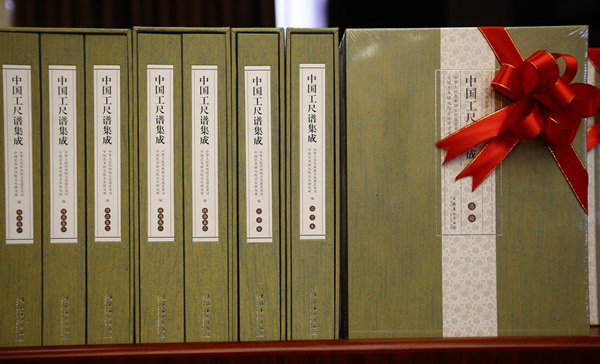 |
|
[Photo provided to China Daily] |
Zhang Zhentao, editor-in-chief of China Gongchepu Collection, who is also a music researcher with the Chinese National Academy of Arts, says: "The scores of some traditional Chinese operas, such as Kunqu Opera and Nanyin, a traditional music genre in Quanzhou, Fujian province, are still documented using the gongchepu method.
"If we don't publish these books, the system of gongchepu could soon die since it is not widely used by contemporary musicians."
Zhang says that the earliest gongchepu they found was in Gansu province's Mogao Caves, which was dated to the year of 634 of the Tang Dynasty.
The 10 books, which have scores from temples and museums, also received help from ordinary people.
For example, a book of gongchepu scores was found with a farmer's family in Hebei province.
"The cover of the book was missing but we were surprised to see that the scores were recorded throughout the Qing Dynasty (1644-1911). From the different years mentioned we could see that the book had been passed down the generations, which is priceless," says Zhang.
"Music has always been an important part of culture in China, from traditional Chinese operas to folk music, which was popular during festivals and religious rituals," says Zhang.
The China Gongchepu Collection project is still on, he says, and more books will be published.